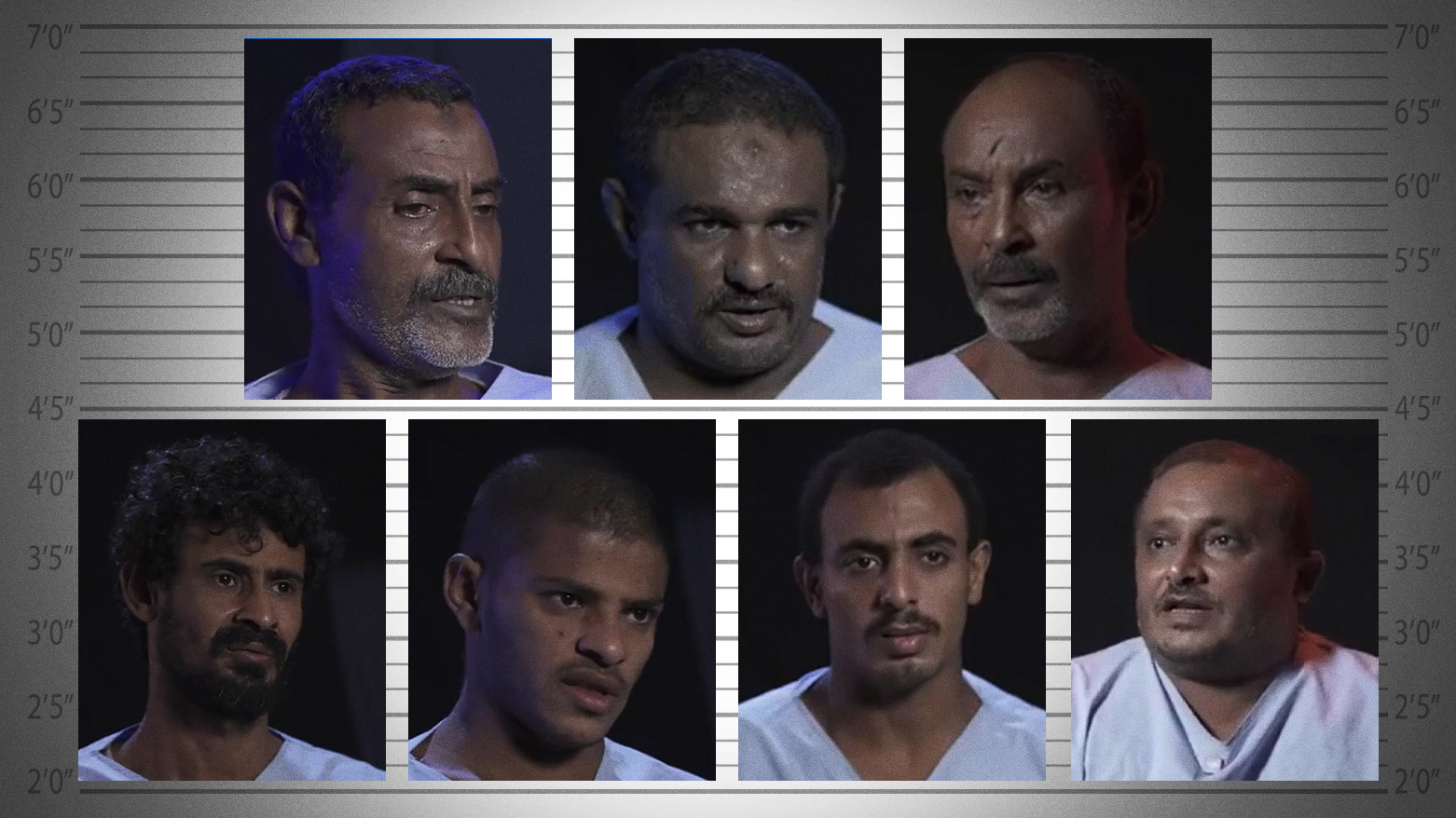Seized Ship in Yemen Carried Chemicals from Iran for Houthi Missiles: Report
A ship's crew confessed to an Iran-led smuggling network supplying Houthis with strategic and chemical weapons, involving the IRGC and Hezbollah. The operation used complex routes via Somalia and Djibouti, undermining Houthi manufacturing claims, per Yemeni Resistance and Sky News Arabia.

ERBIL (Kurdistan24) — The crew of a captured vessel has revealed explosive new information alleging that Iran, with coordination from its Revolutionary Guard and Hezbollah, has been smuggling strategic and chemical weapons to Houthi militias in Yemen through a complex international network, according to an announcement from the Yemeni National Resistance.
The development, highlighted in a report by Sky News Arabia, centers on confessions from the crew of the ship "Al-Sharwa," which was recently seized carrying a reported 750 tons of strategic weapons.
According to the Yemeni National Resistance's statement on Saturday, the confessions from the seven-member crew have exposed a sophisticated supply line extending across Arab, Asian, and African countries.
The crew allegedly detailed the direct involvement of the Iranian Revolutionary Guard and Hezbollah in managing smuggling routes, the types of weapons being transported, and the existence of Houthi militia camps in Tehran.
The information also reportedly includes the names of key leaders, the recruitment of Somali and Indian nationals, and the exploitation of Yemeni sailors' economic hardships to enlist them in the operation.
The National Resistance identified four of the crew members as having entered Iran and participated in smuggling multiple shipments, including what were described as chemical substances, from Bandar Abbas port to the Houthi-controlled port of al-Salif.
The statement, corroborated by the Sky News Arabia report, detailed three primary smuggling routes: a direct path from Iran to Yemen, a second route where the IRGC transports weapons by boat to the Somali coast, and a third route using Djibouti as a transit point where weapons are shipped under a commercial cover.
The crew members allegedly explained the intricate methods used for recruitment and travel. One pathway involved Houthi operatives being flown from Sana'a to Jordan, then smuggled to Lebanon where Hezbollah would take charge of their transfer through Syria to Tehran. Another route was said to pass through the Sultanate of Oman.
The confessions indicated that recruits arriving by air are taken to a Houthi camp in Tehran, reportedly led by a coordinator named "Mohammed Jaafar al-Talibi," before being moved to smaller camps in Bandar Abbas.
A particularly alarming detail, emphasized by the Sky News Arabia report, involves the smuggling of sensitive chemical materials.
Four of the crew members confirmed their participation in transporting shipments in refrigerated containers from Bandar Abbas at specific temperatures set by Iranian specialists. The National Resistance stated this points to the smuggling of materials like hydrazine and liquid nitrogen, which are used in the manufacturing of missiles and explosives.
Regarding the seized shipment aboard the "Al-Sharwa," the crew confirmed it was the 12th of its kind on the Djibouti route. The strategic weapons were reportedly camouflaged inside workshop equipment such as generators and electrical transformers.
The crew expressed their shock when the National Resistance's navy opened the equipment to find dismantled missiles, drones, an air defense system, and radars—weapons the Houthi militia has previously claimed to manufacture domestically. The crew also noted a lack of interception from international naval patrols, detailing how they would evade local patrols by taking a route west of the main shipping lane near Eritrea.
The National Resistance’s statement also revealed the names of several Houthi leaders who allegedly manage the smuggling cells in Hodeidah, including Hussein Hamed Hamza Mohsen al-Attas and Mohammed Dirham Qasim al-Moayad.
In their concluding confessions, the crew members reportedly confirmed the Houthi militia exploited their living conditions for recruitment and mocked the group's claims of military production, stating, "It became clear to us that all the shipments we smuggled... were weapons, and it also became clear to us that we are the Houthi's military manufacturing."
